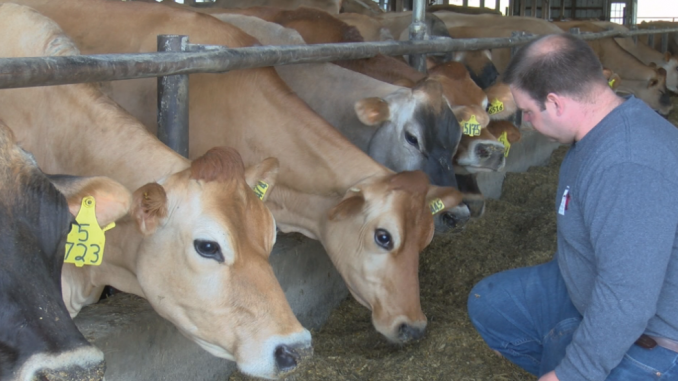
In recent days, social media has been abuzz over photos of large trucks dumping milk, which seems astonishing since the demand for groceries has ballooned in recent weeks due to the coronavirus pandemic. However, the pandemic has disrupted the dairy industry, and is precisely the reason why dairy farmers have to make such a drastic decision.
According to experts, the biggest hit has come from the closure of schools, restaurants and food service outlets, which are big consumers of milk and other related products like butter or cheese. This left dairy processors, the link between the farm and the consumer, with a big problem. Processors take milk and manufacture it into consumer ready products or use it as an ingredient for other products.
The closures have left them with canceled orders and too much milk, which means that many simply have no room to accept more from dairy farmers.
“Since most dairy products are perishable, dairy processors can only store a limited amount of product that they don’t have a buyer for,” said Kara O’Connor, the government relations director for Wisconsin Farmers Union, in a blog post. “Once their storage is full, they start turning away farmers’ milk from the plant because they have nowhere to put the finished product.”
In fact, many dairy farmers have said that their processors—which include cooperatives and supermarket chains, among others—are calling them and telling them to dump their milk or cull their herds.
Dairy Farmers of America, which is made up of more than 13,000 U.S. farmers, told Reuters that it was asking farmers in its organization to dump milk, but would not specify how many. Nonetheless, farmers that say they have been told to dump their milk by Dairy Farmers of America are receiving payment for their milk, for now.
But the organization, like other cooperatives, is not in the best financial shape, and can only afford to pay its farmers for dumped milk for so long, according to USA Today. Reuters reports that Land O’Lakes Inc., another cooperative, has also warned its members that they may have to dump milk.
And although consumer demand for milk in grocery stores is booming, it isn’t easy for suppliers who normally make bulk products for restaurants to suddenly make the transition and make items for consumers. For example, it would cost millions of dollars simply to install the new equipment required to switch from making barrel cheese, used in restaurants, to making cheese wedges, used by grocers, per Reuters.
This week, dairy groups representing the Midwest wrote to the U.S. Department of Agriculture (USDA) and asked it to provide direct assistance to farmers and expedite the purchase of additional dairy foods amid the “unprecedented disruptions in supply and demand” caused by the coronavirus pandemic. Congress allocated $9.5 billion for agriculture producers impacted by the crisis under the CARES Act, the $2.2 trillion dollar coronavirus economic relief bill, among others.
“Direct relief to dairy farmers and a substantial purchase of dairy commodities by USDA can ensure our industry will remain fiscally able to function in its primary role of feeding the nation and the world,” the groups wrote.
*story by Earther